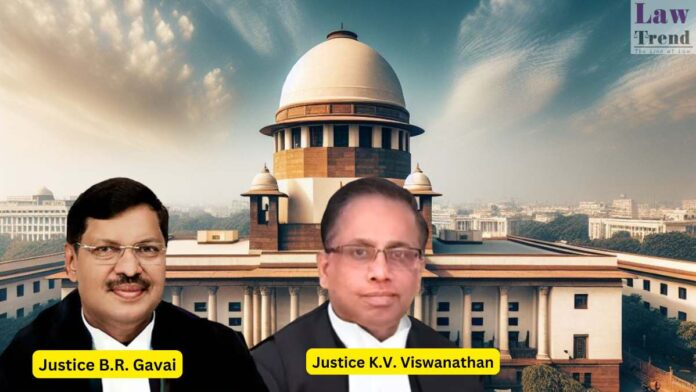In a significant judgment, the Supreme Court of India quashed the summoning of an additional accused, Devendra Kumar Pal, under Section 319 of the Code of Criminal Procedure (CrPC), 1973, holding that such an order is unsustainable when passed after the pronouncement of a conviction. The bench comprising Justice B.R. Gavai and Justice K.V. Viswanathan
To Read More Please Subscribe to VIP Membership for Unlimited Access to All the Articles, Download Available Copies of Judgments/Order, Acess to Central/State Bare Acts, Advertisement Free Content, Access to More than 4000 Legal Drafts( Readymade Editable Formats of Suits, Petitions, Writs, Legal Notices, Divorce Petitions, 138 Notices, Bail Applications etc.) in Hindi and English.




